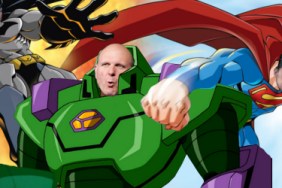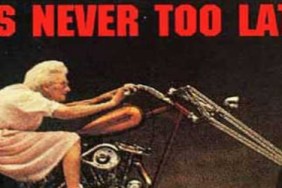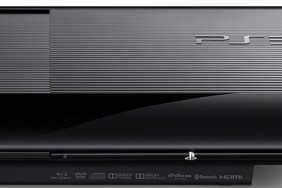The hack of the PlayStation 3 shook the gaming world, with the homebrew community buzzing at the opportunity to get under the hood of the console. But the consequences of such a hack could be potentially devastating to the platform, with easy piracy damaging both developers and publishers. Equally, Sony’s lawsuit of George Hotz and several other hackers made civil liberty groups uneasy, with them worried about the threat it presented to free speech. To learn about both the damaging effect of piracy, as well as the dangers of Sony’s attempts to suppress the hack, PlayStation LifeStyle interviewed Corynne McSherry from the Electronic Frontier Foundation, and Michael Rawlinson, Director General of UKIE.

The Electronic Frontier Foundation is an international non-profit digital rights advocacy and legal organization that defends our digital rights worldwide. To learn more about the EFF, be sure to visit their website.
PlayStation LifeStyle talked to Corynne McSherry, Intellectual Property Director at the EFF about the ramifications of the Sony lawsuit, the possible precedents it could set on the Digital Millennium Copyright Act and the dangers of a lawsuit based upon easy-to-change terms of service.
Hi Corynne, could you start by introducing yourself, and telling us about your work at the Electronic Frontier Foundation?
I’m the Intellectual Property Director at EFF. I focus on copyright, trademark, and free speech litigation.
Sony asked George Hotz et al to remove content from his website that included the tools to ‘jailbreak’ the PS3 – which human rights have been violated?
Any time a lawsuit or other legal threat targets speech, including research, there is a threat in turn to free speech rights.
Free speech advocate Dr David Touretzky* mirrored Hotz’s work in defense of his rights, do you think he was right in doing so?
I think it’s important that the research and gaming communities resist efforts to intimidate them.
How important do you think the court case is to setting a precedent with the Digital Millennium Copyright Act on console hacking?
I think it could be quite important. The DMCA anti-circumventions provisions are still in the early stages of being interpreted by the courts, so cases like this can be quite influential.
As part of their case against Hotz et al, Sony claims that by signing up to the PlayStation Network, they agreed to their Terms of Service, which they can change at any time. Are you worried that a successful suit could have dire consequences?
EFF is very worried about a larger trend, where companies try to use their TOS to transform alleged contract violations into crimes or copyright violations particularly given that most users do not read those terms.
Do you respect Sony’s right to try and limit piracy on the PS3 – and on future consoles – and if so, how should they have acted after the tools were released?
Setting aside the question of whether there is any legal basis for the suit, it will not prevent the information from being available. So it’s difficult to see what Sony intends to accomplish here, other than sending a dangerous message.
Do you support hacking, or just the right to hack?
We support the freedom to tinker.
In an article published by the EFF, that you co-wrote, you called Hotz and failOverflow “security researchers”, but many of them style themselves as hackers, and often don’t have purely honorable intentions – do you worry that by calling them security researchers, you risk tarnishing the name of actual security researchers?
No.
Do you think that Sony will win the court case, or is there little chance of success?
We are still evaluating the legal basis for the claims, so I can’t comment on that yet.
With tools in the jailbreak being supposedly based upon research gathered with the use of the ‘jailbreak dongle’ – a circumvention device containing copyrighted tools from Sony, the jailbreak is thought to differ from the jailbreaks of other devices, such as on the PSP and iPhone, where no copyrighted tools were used. Does this add credence to Sony’s case?
As I mentioned, we are still developing our legal and technical analysis, so I can’t speak to this question at present. Sorry!
PlayStation LifeStyle would like to thank Corynne McSherry for taking time out of her busy schedule to answer the interview questions and Rebecca Jeschke for setting the interview up.
*Free Speech advocate Dr David Touretzky declined to give an interview.
For the full interview with Michael Rawlinson, Director General of UKIE, on the dangers of piracy, and what preventive measures console manufacturers can take, continue reading…








